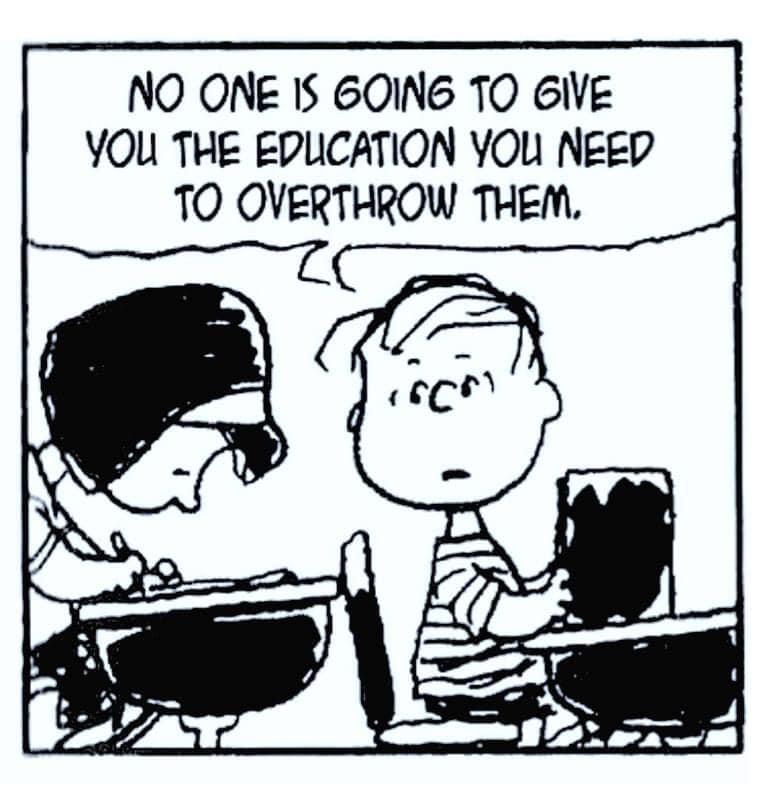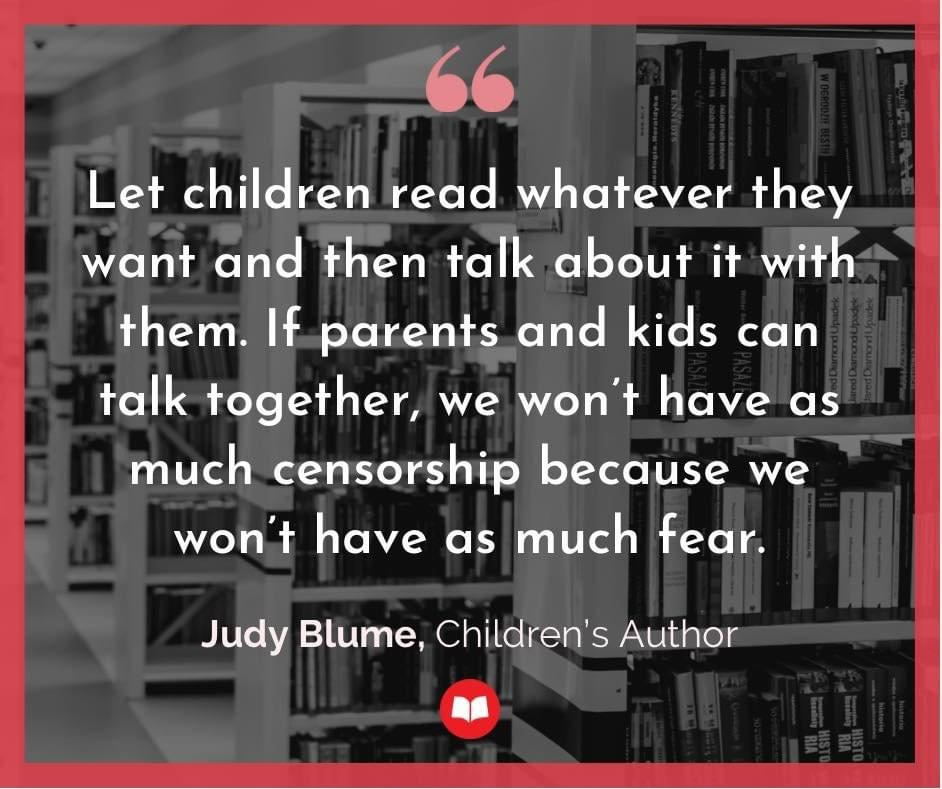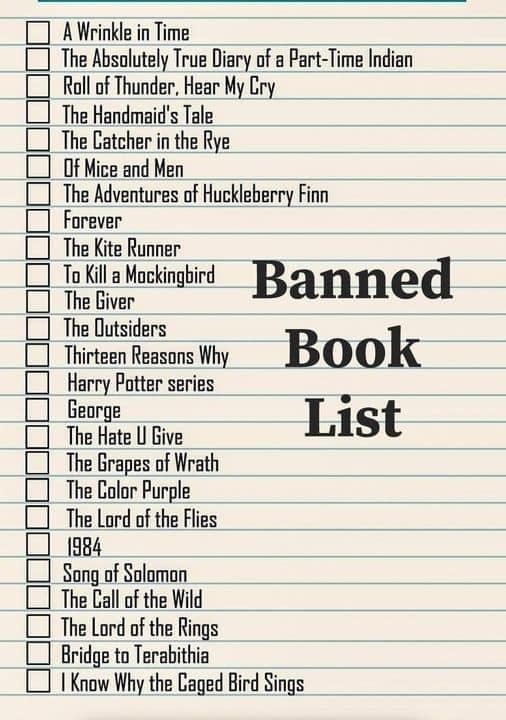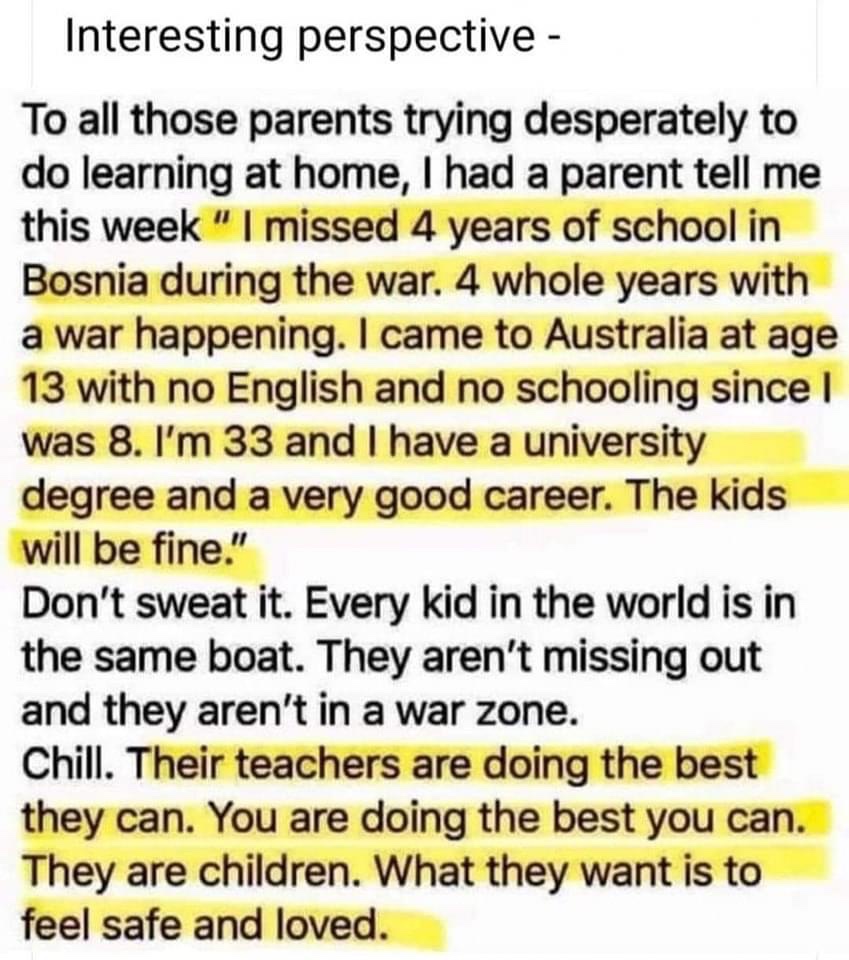
The Second Amendment Explained






Teachers who believe in freedom acknowledge the incalculable value of every student, recognize implicitly or explicitly that the fullest development of each individual is the necessary condition for the full development of all, and, conversely, that the fullest development of all is the condition for the full development of each. Their elemental lesson—whatever else they teach—is that you have every right to be here in this classroom, in this school and larger society, to be recognized and understood, and that you need no one’s permission to interrogate the world. We see before our eyes a sustained and relentless attack on democracy in real time, an attack with multiple dimensions and tactics and venues—but make no mistake, the struggle is not over this or that book, this or that idea or theory. The fundamental fight is for the right to think at all, which is in dispute.
By William Ayers


In my role as English Curriculum Leader for Grades 6-12, one aspect of my job was to deal with parental complaints about books and their requests that their child not have to read a particular book. By the way, I never received such a request from a parent who had read the entire book. Rather, the parent would point to a word, a sentence, or a scene from the book that the parent found objectionable.
My job was to listen to the complaint about a book, explain why that book was chosen for the students to read in that course, urge the parent to see the way that book would satisfy the course goals of developing their child as a reader, writer, and thinker and then, if the parent still objected to the book, offer the parent the opportunity to suggest another book for their child to read which could give their child similar opportunities to develop as a reader, writer, and thinker as did the book which had offended the parent. When the parent decided to suggest another book, then their child would be given that alternate book to read and either stay in the class and share in the class conversation about the assigned book and the alternate book or go to the school library to read the book, based on the parent’s wishes.
It worked well. The educators were in charge of the curriculum, in charge of developing the students as readers, writers, and thinkers. The parents had a voice in what their individual child could read in school, and no parent had any say about what other students could read in a class or what books would be banned from the school library.
I suggest putting that kind of procedure in place instead of banning books. It recognizes that books are ways to develop students as readers, writers, and thinkers, requires parents to look at a book as a whole, and it gives parents a voice about their own child’s education but not a voice about curriculum, which is the learning experience of all the students in a course, and not a voice in what books are available in school libraries.
A wonderful by-product to this school policy is that the conversation that results is about reading literature as a way to develop students as thinkers, readers, and writers, not about what book adults like or don’t like.
